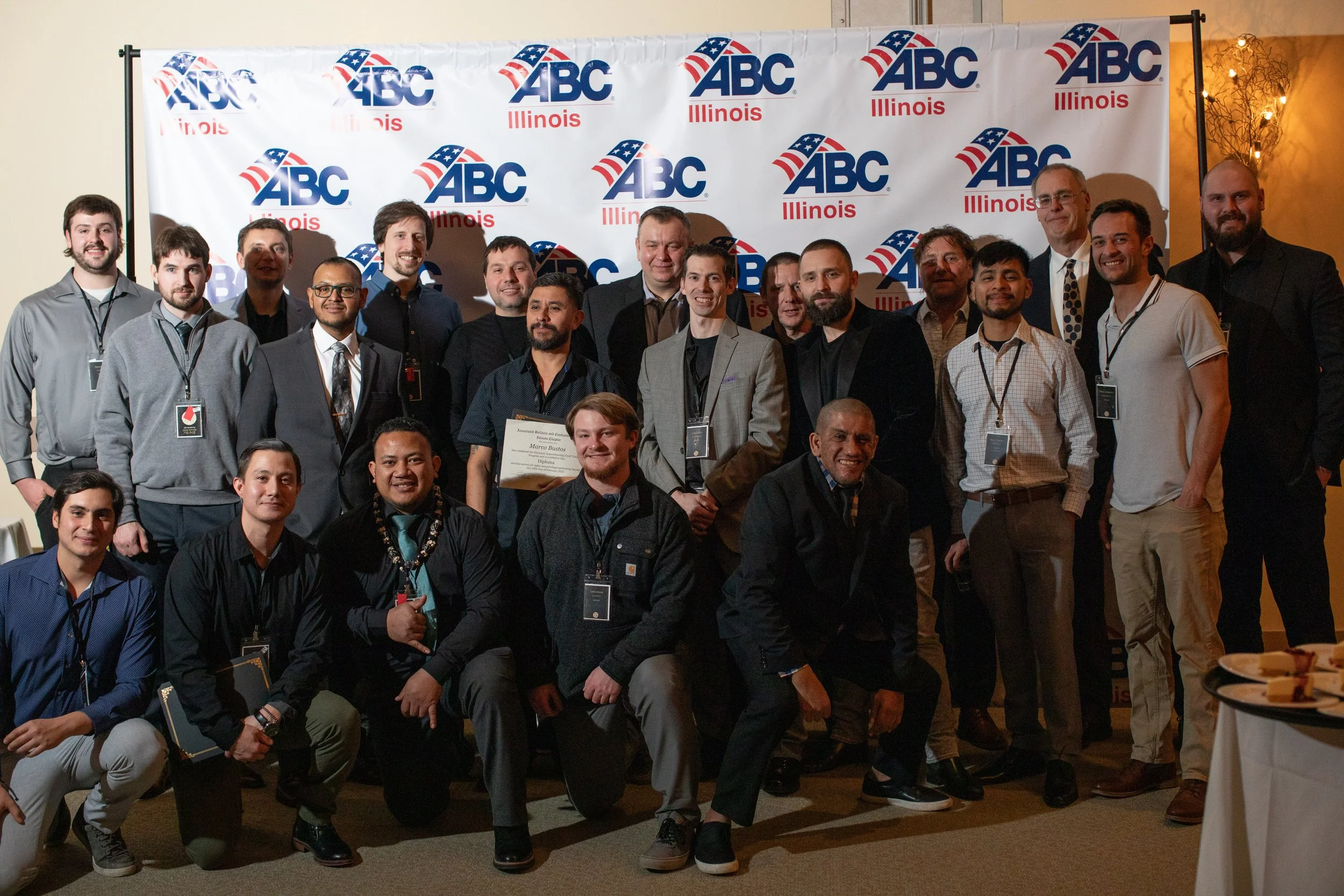Education
ABC provides formal apprenticeship training programs that are registered with the United States Department of Labor, Office of Apprenticeship. Upon successful completion, craft workers are recognized at the journey level in their trade and are awarded their apprenticeship certificate.
ABC has become the world leader in apprenticeship and craft training in the merit shop construction industry. ABC now works closely with its educational affiliate, the National Center for Construction Education and Research (NCCER), in the development, revision and publication of the NCCER Curriculum, which is competency-based, task-driven, modular craft training curricula based on today's construction industry practices.
Craft Training
-
Carpenters measure, cut, and shape wood, plastic, fiberglass and drywall. Commercial and industrial carpenters construct, erect, install and repair structures and fixtures. These carpenters are involved in many different kinds of construction, from buildings to highways and bridges to power plants.
-
Do you dream of building a structure with your own two hands or restoring historical buildings? Check out training in masonry! Brick masons, block masons and stonemasons use bricks, concrete blocks and natural stones to build attractive, durable surfaces and structures. These craft professionals have created buildings, walls and roads for thousands of years and will continue to do so long into the future.
Subject to demand & availability
-
Provides trainees with an overall course on safety, math, hand tools, rigging, material handling, employability, communication, power tools, and drawings.
-
Electricians install and maintain all of the electrical and power systems for our homes, businesses, and factors.
-
As a heavy equipment operator, you will learn how to safely use this type of equipment to move construction materials, dirt and other heavy objects at construction sites and mines. This occupation operates equipment construction of roads, buildings, and bridges, as well as airport runways, power generation facilities, dam, levees and other structures.
-
Our HVAC program teaching heating, cooling, piping practices, soldering and brazing, and basic electricity.
-
Laborer’s learn how to handle and place concrete, how to utilize rigging equipment properly and in-depth trenching and excavating practices. They also will focus on blueprint reading and personal protection equipment (PPE).
-
Painters are responsible for choosing and applying just the right paint or colors to buildings and industrial structures. This career path ranges from industrial spray painters who apply coatings to prevent deterioration to decorative artisans who create faux finishes.
Subject to demand & availability
-
Pipefitters plan and install detailed pipe systems for commercial and industrial projects. These pipes may carry water, chemicals or gases to the crucial building systems. Pipefitters use many tools to cut and bend pipes to exact specifications.
Subject to demand & availability
-
Plumbers do much more than fix sinks and toilets in residential homes. They design and install piping systems that distribute water and remove waste from buildings, and connect heating and cooling systems. Plumbers have to be knowledgeable in water distribution, blueprint reading, local ordinances and regulations, mathematics, mechanical drawing, physics, welding and soldering.
-
Take an interest in becoming a roofer and rise above the rest! Roofers use a variety of materials to build roofs and cover structures such as houses, mall and hospitals. The materials used are shingles, asphalt, wood and aluminum. They perform routine inspections and maintenance on a building’s roof and determine the best repair procedures. Safety procedures and proper personal protective equipment is key to perform these tasks.
Subject to demand & availability
-
Are you a detail-oriented kind of person? Sprinkler fitting may be a good career to consider! Sprinkler fitters design, install and test automatic fire protection sprinkler systems and components such as sprinklers, piping and valves. They have to know all of the local and national sprinkler codes and make sure that all work is according to specifications.
Subject to demand & availability
-
Welders join objects together by applying heat or pressure. Skilled welders have a thorough knowledge of welding principals and metals. They use blueprints and drawings to build anything from ships to cars to bridges. Welders play crucial role in maintaining a variety of power plants and have the opportunity to travel throughout the year.
Subject to demand & availability




